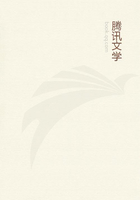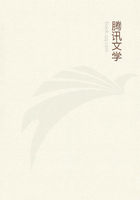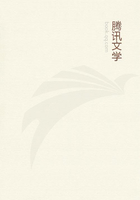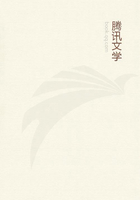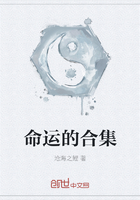But if this image, or rather this formal intuition, is the essential property of our sensibility, by means of which alone objects are given to us, and if this sensibility represents not things in themselves, but their appearances: we shall easily comprehend, and at the same time indisputably prove, that all external objects of our world of sense must necessarily coincide in the most rigorous way with the propositions of geometry; because sensibility by means of its form of external intuition, viz., by space, the same with which the geometer is occupied, makes those objects at all possible as mere appearances. It will always remain a remarkable phenomenon in the history of philosophy, that there was a time, when even mathematicians, who at the same time were philosophers, began to doubt, not of the accuracy of their geometrical propositions so far as they concerned space, but of their objective validity and the applicability of this concept itself, and of all its corollaries, to nature. They showed much concern whether a-line in nature might not consist of physical points, and consequently that true space in the object might consist of simple [discrete] parts, while the space which the geometer has in his mind [being continuous] cannot be such. They did not recognize that this mental space renders possible the physical space, i.e., the extension of matter; that this pure space is not at all a quality of things in themselves, but a form of our sensuous faculty of representation; and that all objects in space are mere appearances, i.e., not things in themselves but representations of our sensuous intuition. But such is the case, for the space of the geometer is exactly the form of sensuous intuition which we find a priori in us, and contains the ground of the possibility of all external appearances (according to their form), and the latter must necessarily and most rigidly agree with the propositions of the geometer, which he draws not from any fictitious concept, but from the subjective basis of all external phenomena, which is sensibility itself. In this and no other way can geometry be made secure as to the undoubted objective reality of its propositions against all the intrigues of a shallow Metaphysics, which is surprised at them [the geometrical propositions], because it has not traced them to the sources of their concepts. REMARK II. Whatever is given us as object, must be given us in intuition. All our intuition however takes place by means of the senses only; the understanding intuits nothing, but only reflects. And as we have just shown that the senses never and in no manner enable us to know things in themselves, but only their appearances, which are mere representations of the sensibility, we conclude that all bodies, together with the space in which they are, must be considered nothing but mere representations in us, and exist nowhere but in our thoughts.' You will say: Is not this manifest idealism? Idealism consists in the assertion, that there are none but thinking beings, all other things, which we think are perceived in intuition, being nothing but representations in the thinking beings, to which no object external to them corresponds in fact. Whereas I say, that things as objects of our senses existing outside us are given, but we know nothing of what they may be in themselves, knowing only their appearances, 1. e., the representations which they cause in us by affecting our senses. Consequently I grant by all means that there are bodies without us, that is, things which, though quite unknown to us as to what they are in themselves, we yet know by the representations which their influence on our sensibility procures us, and which we call bodies, a term signifying merely the appearance of the thing which is unknown to us, but not therefore less actual. Can this be termed idealism? It is the very contrary. Long before Locke's time, but assuredly since him, it has been generally assumed and granted without detriment to the actual existence of external things, that many of their predicates may be said to belong not to the things in themselves, but to their appearances, and to have no proper existence outside our representation. Heat, color, and taste, for instance, are of this kind. Now, if I go farther, and for weighty reasons rank as mere appearances the remaining qualities of bodies also, which are called primary, such as extension, place, and in general space, with all that which belongs to it (impenetrability or materiality, space, etc.)-no one in the least can adduce the reason of its being inadmissible. As little as the man who admits colors not to be properties of the object in itself, but only as modifications of the sense of sight, should on that account be called an idealist, so little can my system be named idealistic, merely because I find that more, nay, A11 the properties which constitute the intuition of a body belong merely to its appearance. The existence of the thing that appears is thereby not destroyed, as in genuine idealism, but it is only shown, that we cannot possibly know it by the senses as it is in itself. I should be glad to know what my assertions must be in order to avoid all idealism. Undoubtedly, I should say, that the representation of space is not only perfectly conformable to the relation which our sensibility has to objects-that I have said- but that it is quite similar to the object,-an assertion in which I can find as little meaning as if I said that the sensation of red has a similarity to the property of vermilion, which in me excites this sensation. REMARK III. Hence we may at once dismiss an easily foreseen but futile objection, "that by admitting the ideality of space and of time the whole sensible world would be turned into mere sham." At first all philosophical insight into the nature of sensuous cognition was spoiled, by making the sensibility merely a confused mode of representation, according to which we still know things as they are, but without being able to reduce everything in this our representation to a clear consciousness; whereas proof is offered by us that sensibility consists, not in this logical distinction of clearness and obscurity, but in the genetical one of the origin of cognition itself.
同类推荐
热门推荐
邪王独宠:娘子,不要跑
[男女主身心干净]一个意外穿越成隋朝的大美人李蓉蓉,老天你在耍我吧!秦叔宝在哪儿,我要跟你私奔!千万别让昏庸好色的杨广给撞着,不然就要开启我多舛的悲惨命运。尼玛,谁告诉我这神俊非凡、气宇轩昂、运筹帷幄的美男子是杨广!该死的电视剧坑害我的三观。这更得跑了,此地不宜久留。宝宝,你等等我……穿越医女嫁贤夫
本文已经改名为《菀心有晴天》实体出版上市,当当、淘宝等各大网站均有销售,晚晚求支持哦~穿越不可怕,可怕的是穿越到苦哈哈的农村,医科女研究生摇身一变成为被退亲的村姑。她一不会种田,二不会刺绣,父亲早亡,家里一穷二白,破旧的院子关不住前来顺手牵羊的大伯一家,不怕,她有灵泉有空间良田千倾,更有一身医术,且看她如何带着一家大小发家致富穿金戴银。神马?新皇要选妃?所有及笄未嫁女子都要参选?“关朗哥,要不我嫁给你行么?”某女一脸试探。一句话,被村民笃定嫁不出去的陆家菀姐儿终于出嫁了。丈夫没田?没事!她有!丈夫是猎户,是武夫?没事!有安全感!她陆紫菀,嫁鸡随鸡,嫁狗随狗,嫁个猴子满山走!那个~贤夫,等等媳妇啊~(情节虚构,切勿模仿)


